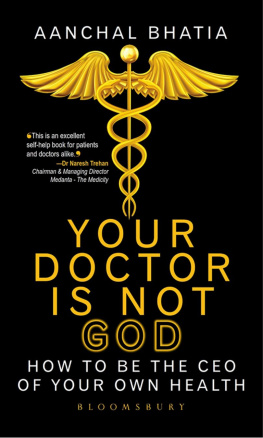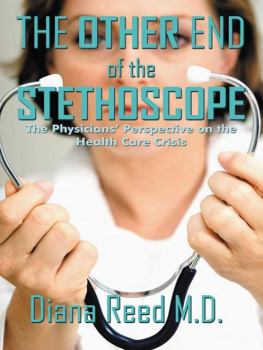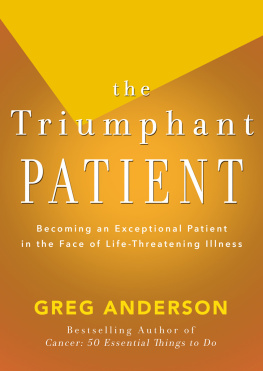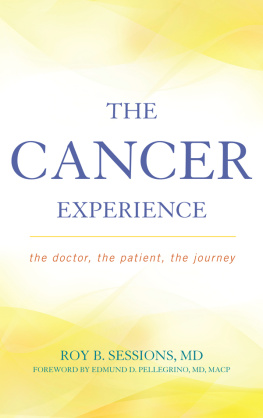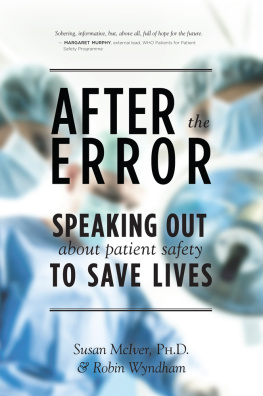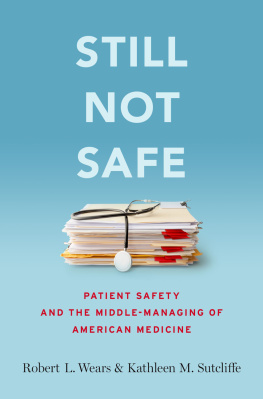Originally Published in 1963 by The Bobbs-Merrill Company, Inc.
Published 1991 by Transaction Publishers
Published 2017 by Routledge
2 Park Square, Milton Park, Abingdon, Oxon 0X14 4RN
711 Third Avenue, New York, NY 10017, USA
Routledge is an imprint of the Taylor & Francis Group, an in forma business
New material this edition copyright 1991 by Taylor & Francis.
All rights reserved. No part of this book may be reprinted or reproduced or utilised in any form or by any electronic, mechanical, or other means, now known or hereafter invented, including photocopying and recording, or in any information storage or retrieval system, without permission in writing from the publishers.
Notice:
Product or corporate names may be trademarks or registered trademarks, and are used only for identification and explanation without intent to infringe.
Library of Congress Catalog Number: 90-31966
Library of Congress Cataloging-in-Publication Data
Davis, Fred, 1925-
Passage through crisis : polio victims and their families / by Fred Davis ; with a new introduction by the author.
p. cm.
Originally published in 1963 by the Bobbs-Merrill CompanyT.p. verso.
ISBN 0-88738-853-1
1. PoliomyelitisPsychological aspects. 2. PoliomyelitisPatientsFamily relationships.1. Title.
RC180.1.D31990
| 362.1 '96835dc20 | 90-31966
CIP |
ISBN 13: 978-0-88738-853-8 (pbk)
In 1957 when I was writing what would appear six years later as Passage through Crisis, I found reason at one point to invert a familiar French saying to make it read: plus cest la mme chose, plus a change. This seemed to me at the time, as it still does, an apt characterization of the strong sense of existential continuity that the fourteen families my colleagues and I studied were able to sustain over the many changes, alterations, and dislocations brought about in their lives by their child having contracted paralytic poliomyelitis. Now, thirty and some years later, surveying as best as I can what has happened since in American health care in the way doctors and patients engage each other, I am inclined to revert to the original form of the aphorism: plus a change, plus cest la mme chose.
Let me explain. I do not, of course, mean that everything about American health care practice that ultimately finds its mundane expression in the give-and-take of doctor-patient relations has remained frozen through time. Obviously, a very great deal has changed, so much so as to preclude anything like an adequate review here of the myriad changes, many profound, that have affected one or another aspect of the doctor-patient relationship. These are changes in, to cite the most obvious, medical technology, the administration of physician and hospital practice, health care financing, the general health levels of the population, and the epidemiological patterning of morbidity and mortality including the near disappearance of such old diseases as polio itself and the arrival of such dreadful new ones as AIDS and Alzheimer's. In parallel fashion there have been important developments and shifts of emphases in how medical sociologists and other social scientists go about studying health care, in the methodologies they employ, and in the theoretical concepts they bring to bear on their data. I shall want to comment on some of these changes in the course of this introduction. For now, though, let me fix on what seems not to have changed or to have changed very little, namely, the actual encounter of physician and patient and the ensuing exchange between them.
A major finding of Passage through Crisis was how very problematic communication was between doctor and patient, although in the particular case of polio the communication was mainly between doctors and the parents of the children who contracted the disease. Contrary to the idealized rational yet humanistic portrait American medicine gave of itself (and in medical sociology where the reigning structural-functionalism of the time was inclined to stand in admiration of that very portrait), my colleagues and I found something quite different. Along with what could be considered a certain amount of frank and straightforward imparting of information to the parents and, clearly, some degree of compassionate concern for them and their stricken children, there was between physician and family also much misunderstanding, manipulation of information, evasiveness, unrealistic expectation, and sheer mistrust. It soon became clear that the physicians (and, in different though complementary ways, nurses and physiotherapists as well) and the families, including the stricken children themselves, held very different definitions of the situation with respect to the child's condition and prognosis. These sometimes sharply divergent definitions of medical staff and family persisted well beyond the acute and actively convalescent phases of the disease. The differences were especially apparent in the cases of those families whose children had sustained a more than minimal impairment as a result of the disease. It was as if the then widely presumed guidance-cooperation model of doctor-patient relations (Szasz and Hollander 1956), one in which sensitive and knowledgeable experts are seen to impart accurate information and sound counsel to concerned and trusting clients, had been subverted into what could more nearly be characterized as a manipulation-suspicion model of doctor-patient relations.
Much of Passage through Crisis was devoted to analyzing this seemingly anomalous state of affairs. I described there how the divergence in perspectives came about and what consequences this had for the stricken child and for the life of the family. Two facets of this divergence of perspectives were, I felt, particularly salient for understanding the problematic quality of doctor-patient communications. The first, about which I was quite explicit in the book, was that the family's misperceptions and misunderstandings of their child's condition and prospects were in no small part due to the communications of medical treatment personnel themselves: their evasiveness and failure to take sufficient time to explain, and their sometimes defensive, sometimes thoughtless resort to technical language that parents did not understand.
The other aspect of the divergence of perspectives was implicit in much of what I wrote but which I now feel should have been highlighted. It was sociologically incorrectactually, condescendingto treat the family's divergent perspective as some aberrant, deviant, or culturally benighted version of the medically authoritative one, a point of view the reigning medical sociology of the time led one to adopt. Robert Straus (1957) had only recently drawn the telling distinction between sociology in medicine and sociology of medicine and, immersed as it was in the 1950s Zeitgeist of salvation through science, even the sociology of medicine, in which I believed my work belonged, tended to reflect viewpoints of a physician-driven sociology in medicine. In numerous respects, the family perspective I described represented an authentic embodiment of the natural concerns and conditions of life of the family. As such it qualified for the same sort of existential, if not necessarily medical, legitimation as sociologists were ready to accord the physician perspective with its professionally interested notions of how patients were to think and behave. As Peter Conrad (1984) would observe some twenty years after the publication of


